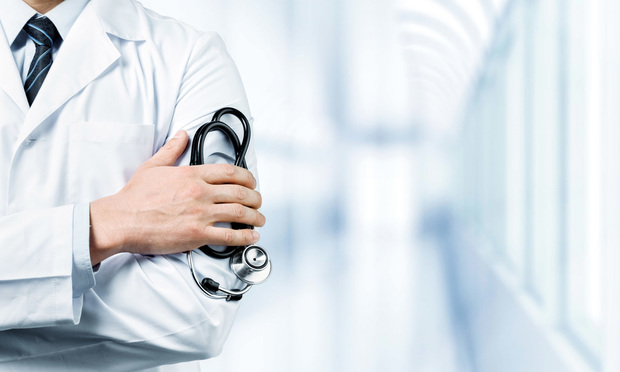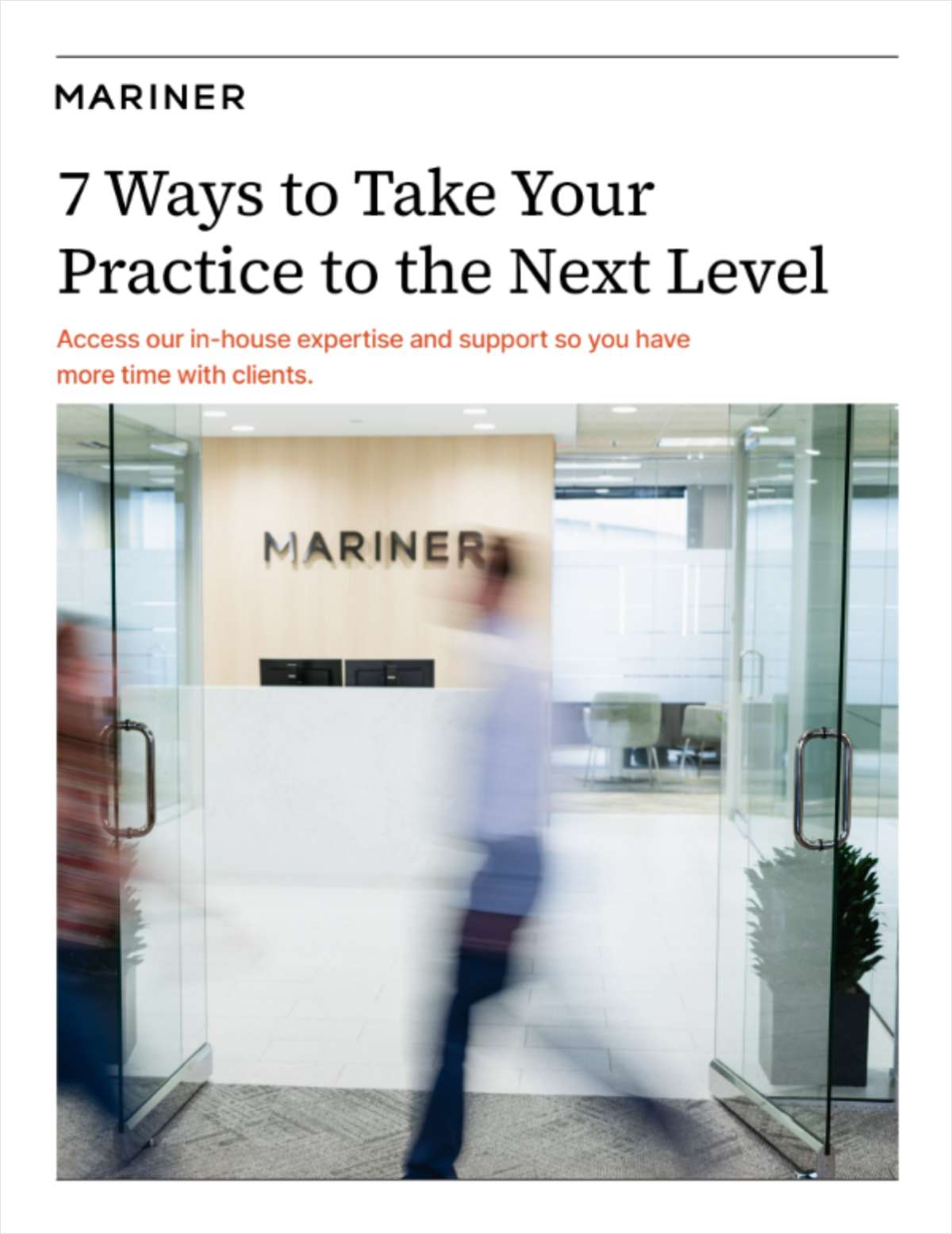Is There A Juris Doctor In the House?
For lawyers, accustomed to being able to solve problems large and small on a daily basis, the coronavirus crisis is particularly frustrating. But they will also welcome the opportunity to lend their talents.
April 24, 2020 at 01:02 PM
3 minute read
 Both doctors and lawyers will be needed by the world in the coming months.
Both doctors and lawyers will be needed by the world in the coming months.
Stay Home. Limit Travel. Retreat into your innermost sanctum and treat yourself like a loaded gun. Don't cough. Don't touch. Don't sneeze. Shelter in place.
For lawyers, accustomed to being able to solve problems large and small on a daily basis, the coronavirus crisis is particularly frustrating.
There is every reason to salute the practicing doctors, nurses and scientists on the front lines. Their work deserves the legal community's heartfelt support.
And now, in less obvious ways, the task of countering COVID-19′s slow hurricane will fall to lawyers, statesmen, governors and ethics experts. Lawyers have reason to welcome the opportunity to lend their talents.
The late Connecticut Supreme Court Justice T. Clark Hull expressed it well.
Hull viewed the law as a noble, learned profession. He admitted he didn't like it when his doctor friends chided him about notorious, errant lawyers.
"Let's not be ashamed of being lawyers and judges and politicians," Hull declared. He told those doctors, "When your predecessors were putting leeches on George Washington, my predecessors were drafting the Constitution of the United States."
When it comes to identifying pathogens, lawyers, statesmen and philosophers had a vast head start. From the days of Aristotle and Plato, identifying the characteristics of dangerous and harmful humans was a front-burner objective—being perfected, hit or miss, even by cavemen.
But the "bad guys" that doctors fight were invisible to the naked eye.
Before the invention of the microscope and discovery of germs, doctors and scientists were basically in the dark about disease. They couldn't really explain why food went bad, let alone human beings.
Yet, even in the candle-lit era of parchment and quill pens, the founding fathers realized that government corruption was inevitable without checks and balances. Among the various states, differing solutions have been fashioned by courts and legislatures—individual laboratories of social policy and governing.
In the other laboratories, those of drug companies and universities, they are racing hard. The longer race is to discover a vaccine. The shorter race—terribly important to the economy and the stability of society—is for a rapid at-home test for Covid-19 antibodies.
That kind of blood-drop test—approved in other countries—would fill a huge hole in America's scientific understanding, identifying who has already contracted the disease and developed some natural immunity. Because a large proportion of those infected showed few or no symptoms, this plague is very poorly mapped.
More data is needed to track the spread of the disease and to blunt its force.
Indeed, once identified, thousands of COVID survivors might be able to donate antibody plasma to the stricken, saving lives even before the vaccine is available. This certainly presents hope.
The top doctors overseeing the laboratories will make their best choices among the options. If the testing kits and vaccines are delivered with scrupulous fairness, it could be a proud hour for this democratic republic. That's where the law and the learning of lawyers comes in. Our national leaders need to choose among the state "social policy" laboratories and nationalize the practices that are actually stopping the spread.
Lawyers, judges, lawmakers—you know the medical doctors and scientists can't accomplish this alone.
This content has been archived. It is available through our partners, LexisNexis® and Bloomberg Law.
To view this content, please continue to their sites.
Not a Lexis Subscriber?
Subscribe Now
Not a Bloomberg Law Subscriber?
Subscribe Now
NOT FOR REPRINT
© 2025 ALM Global, LLC, All Rights Reserved. Request academic re-use from www.copyright.com. All other uses, submit a request to [email protected]. For more information visit Asset & Logo Licensing.
You Might Like
View All
ADVANCE Act Offers Conn. Opportunity to Enhance Carbon-Free Energy and Improve Reliability With Advanced Nuclear Technologies

Trending Stories
- 1Gen AI and Associate Legal Writing: Davis Wright Tremaine's New Training Model
- 2Departing Attorneys Sue Their Former Law Firm
- 3Pa. High Court: Concrete Proof Not Needed to Weigh Grounds for Preliminary Injunction Order
- 4'Something Else Is Coming': DOGE Established, but With Limited Scope
- 5Polsinelli Picks Up Corporate Health Care Partner From Greenberg Traurig in LA
Who Got The Work
J. Brugh Lower of Gibbons has entered an appearance for industrial equipment supplier Devco Corporation in a pending trademark infringement lawsuit. The suit, accusing the defendant of selling knock-off Graco products, was filed Dec. 18 in New Jersey District Court by Rivkin Radler on behalf of Graco Inc. and Graco Minnesota. The case, assigned to U.S. District Judge Zahid N. Quraishi, is 3:24-cv-11294, Graco Inc. et al v. Devco Corporation.
Who Got The Work
Rebecca Maller-Stein and Kent A. Yalowitz of Arnold & Porter Kaye Scholer have entered their appearances for Hanaco Venture Capital and its executives, Lior Prosor and David Frankel, in a pending securities lawsuit. The action, filed on Dec. 24 in New York Southern District Court by Zell, Aron & Co. on behalf of Goldeneye Advisors, accuses the defendants of negligently and fraudulently managing the plaintiff's $1 million investment. The case, assigned to U.S. District Judge Vernon S. Broderick, is 1:24-cv-09918, Goldeneye Advisors, LLC v. Hanaco Venture Capital, Ltd. et al.
Who Got The Work
Attorneys from A&O Shearman has stepped in as defense counsel for Toronto-Dominion Bank and other defendants in a pending securities class action. The suit, filed Dec. 11 in New York Southern District Court by Bleichmar Fonti & Auld, accuses the defendants of concealing the bank's 'pervasive' deficiencies in regards to its compliance with the Bank Secrecy Act and the quality of its anti-money laundering controls. The case, assigned to U.S. District Judge Arun Subramanian, is 1:24-cv-09445, Gonzalez v. The Toronto-Dominion Bank et al.
Who Got The Work
Crown Castle International, a Pennsylvania company providing shared communications infrastructure, has turned to Luke D. Wolf of Gordon Rees Scully Mansukhani to fend off a pending breach-of-contract lawsuit. The court action, filed Nov. 25 in Michigan Eastern District Court by Hooper Hathaway PC on behalf of The Town Residences LLC, accuses Crown Castle of failing to transfer approximately $30,000 in utility payments from T-Mobile in breach of a roof-top lease and assignment agreement. The case, assigned to U.S. District Judge Susan K. Declercq, is 2:24-cv-13131, The Town Residences LLC v. T-Mobile US, Inc. et al.
Who Got The Work
Wilfred P. Coronato and Daniel M. Schwartz of McCarter & English have stepped in as defense counsel to Electrolux Home Products Inc. in a pending product liability lawsuit. The court action, filed Nov. 26 in New York Eastern District Court by Poulos Lopiccolo PC and Nagel Rice LLP on behalf of David Stern, alleges that the defendant's refrigerators’ drawers and shelving repeatedly break and fall apart within months after purchase. The case, assigned to U.S. District Judge Joan M. Azrack, is 2:24-cv-08204, Stern v. Electrolux Home Products, Inc.
Featured Firms
Law Offices of Gary Martin Hays & Associates, P.C.
(470) 294-1674
Law Offices of Mark E. Salomone
(857) 444-6468
Smith & Hassler
(713) 739-1250












